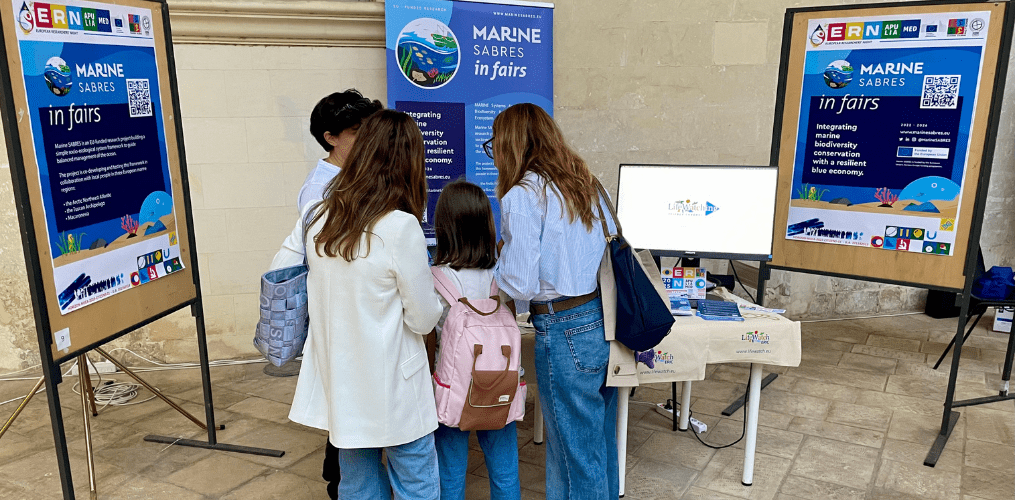
For one night, research and discovery took centre stage in Lecce at the European Researchers’ Night – ERN Apulia Med 2025. LifeWatch ERIC welcomed more than 80 visitors at its ‘Marine SABRES in Fairs’ stand, offering an immersive journey into marine biodiversity, ecosystem resilience, and the future of the blue economy.
Children, families, students, and curious citizens explored the results of Marine SABRES, a Horizon Europe project that is working across Europe to restore marine ecosystems and ensure sustainable use of ocean resources. Posters, brochures, videos and hands-on materials guided the audience through the project’s work and its mission to make ecosystem-based management more practical and achievable.
One of the highlights of the night was the preview of the Marine SABRES Serious Game. For the first time, young visitors could try out the interactive online game, ahead of the official School Competition scheduled for World Fisheries Day, 21 November 2025. The game is designed for students between 10 and 18 years old and helps them discover how human activities affect marine ecosystems, and why this matters for our own well-being.
The stand also featured the documentary trailers produced by the LifeWatch Italy Multimedia Production Centre, offering a glimpse into the project’s three marine regions: the Arctic Northeast Atlantic, the Tuscan Archipelago and Macaronesia. Additional filming is planned during the next Marine SABRES General Assembly in Pisa (21–23 October 2025).
See the full photo gallery to revisit the key moments of the event.
If you missed the event, you can still watch the documentary trailers on LifeWatching.tv and discover the Serious Game School Competition.
For more information, please visit Marine SABRES official website: www.marinesabres.eu